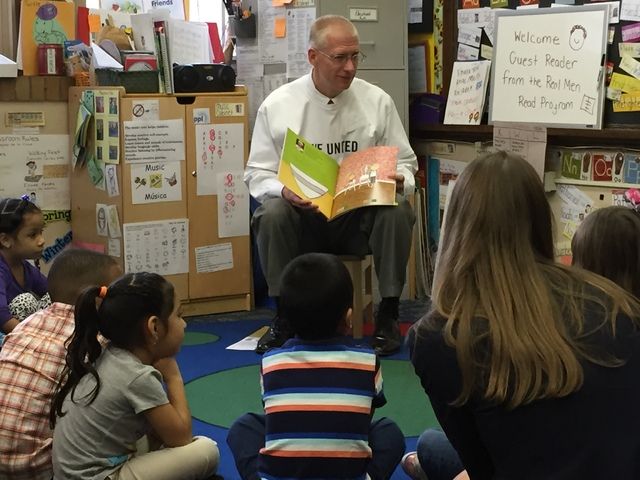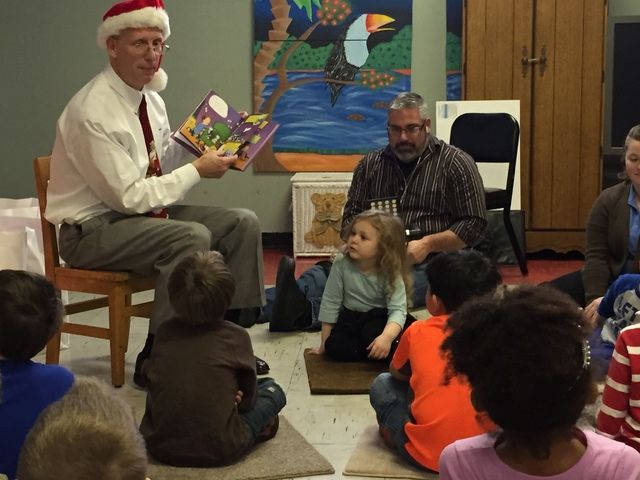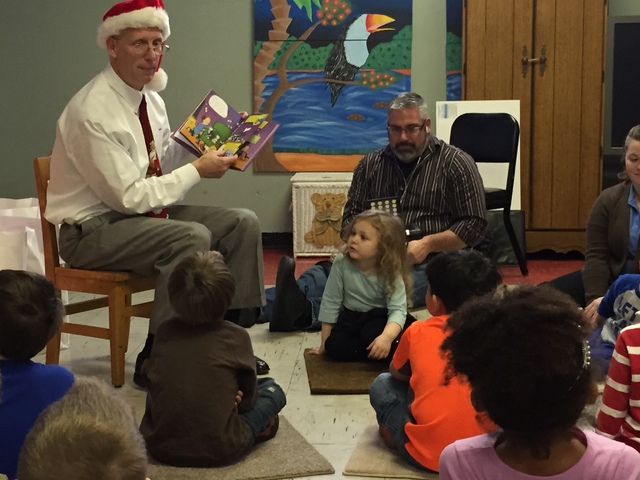WILKES-BARRE — Nearly one in three children living in poverty in Luzerne County faces challenges many of us can only imagine.
As many of those children’s peers wake up to eggs and toast, with Mom and Dad at the kitchen table inquiring as to whether they have satisfactorily completed their homework, these children might crawl out from under the blankets wondering if there’s heat in the house on any given morning.
For many of them, a hot breakfast is not a reality, as Mom is getting herself ready for work, perhaps at one of two jobs.
Some wake up hungry, relying on the free breakfast and lunch programs through the school districts as their only meals of the day.
Some may even need to assist younger siblings in choosing clothes and getting book bags ready.
This picture is grim, but it is one Bill Jones, CEO and president of the United Way of Wyoming Valley, is working to change through an evidenced-based program entitled “From Poverty to Possibilities.”
“Issue driven” movement
As the United Way looks to the future, Jones says he’s committed to improving the odds for children and families.
He, along with the Board of Directors, has led the charge in changing the way the organization helps the community, sharing his vision with other community leaders.
According to Jones, rather than simply engaging in general fund raising, the United Way has become an “issue-driven” entity, facing the issue of childhood poverty head-on. That’s critical, he said, in a county where it’s estimated about 33 percent of children under 5 are living in poverty, a situation Jones describes as “not acceptable.”
In its second year, the movement has focused on reducing poverty among children and families in the community, making long-term success more likely.
In 2015, after a lengthy study, Jones redirected the lion’s share of the organization’s funding to organizations working with children and parents challenged by economics, thus improving their lives, physically, economically and emotionally.
“Without proper food, stable housing and access to good healthcare, children don’t succeed in school, graduate on time and move on to self sufficiency as adults” he said.
The program, which addresses issues of children and their parents, seeks to equip youngsters to be ready to learn and parents to be ready to earn.
Jones emphasizes the program, although geared toward children, benefits the community in the long term.
Higher graduation rates mean less crime, an increased tax base and sustained income for residents.
Evidenced-based strategies
Jones said the program is data-driven, and is funding many evidenced-based practices.
For example, he said, children not proficient in reading by the third grade are more less likely to graduate from high school.
“Up until third grade, children are learning to read,” he said. “After third grade, they need to be able to read to learn.”
The solution, he said, while not easy, is removing impediments to learning from the lives of children.
Whether that means mentors going to schools and reading to children, providing new age-appropriate books to children or providing an after-school environment conducive to learning, Jones said the organization is looking at many innovative approached.
He said funding directed toward such laudable programs as the McGlynn Learning Center, Maternal and Family Health Services and the Wyoming Valley Children’s Association lay the foundation for positive and productive futures for future generations.
Originally a banker where he spent 15 years in the business world, Jones knows the significance of numbers and the value of statistics.
When he talks about 11,535 children under the age of 18 living in poverty in the Wyoming Valley, 9.6 children per 1,000 in foster care and 5 percent of children under 18 being medically uninsured, he’s not speaking about just numbers.
Instead, he’s painting a picture of those children who could succeed if given the chance.
The goal is to give them that chance by careful and appropriately directed funds coupled with community support.
Jones said he has also had the privilege of working with young adults during his career, some homeless, many of whom haven’t had the opportunity to graduate from high school, most without proper direction.
And, although he has found the work with those young adults fulfilling, he said, moving forward, he would hope those young people can be reached sooner and more effectively.
“If we can effectively implement programs assisting children and their parents, starting at birth and supporting them through their early years,” he said, “we may be able to prevent them from being homeless in the first place.”
Unique programs
Jones said, although the bulk of the organization’s funding goes to support other organizations, the United Way has come up with several unique programs which directly benefit the community.
One of the programs, the result of a partnership with the Dolly Parton Foundation, has registered over 1,700 children in the Imagination Library, each one getting a brand new book each month, encouraging a love for reading.
Another program “Real Men Read,” is a volunteer effort that brings “MENtors” from the Wyoming Valley into kindergarten classes for one hour each month to encourage literacy skills and provide positive male role models.
“Why start at the kindergarten level?” asked Jones. “Again, because young readers, those in the third grade and under, are more likely to be successful in the long term.”
Don’t ask who
When Jones presents his vision in the community, he is often met by skepticism.
People want to know how any intervention or service will have a positive result. They seek specifics and take notes.
And yet Jones’ answer is somewhat simple — perhaps unexpected from a man who has majored in business and is quick to cite statistics.
“I believe that hope never fails,” he said. “I have hope for these children, their families and our community.”
As he tells a story about his visit to Luzerne County Community College last year, emotion is evident in his face.
One question from a student still moves him.
“At the end of the question and answer period, I said I would take one more question,” he said.
One hand went up.
“A young woman raised her hand and asked the question that I hope we are all asking ourselves,” he said thoughtfully. ‘How can I help?”’ she asked.
That, Jones said, was the best question of the day.






